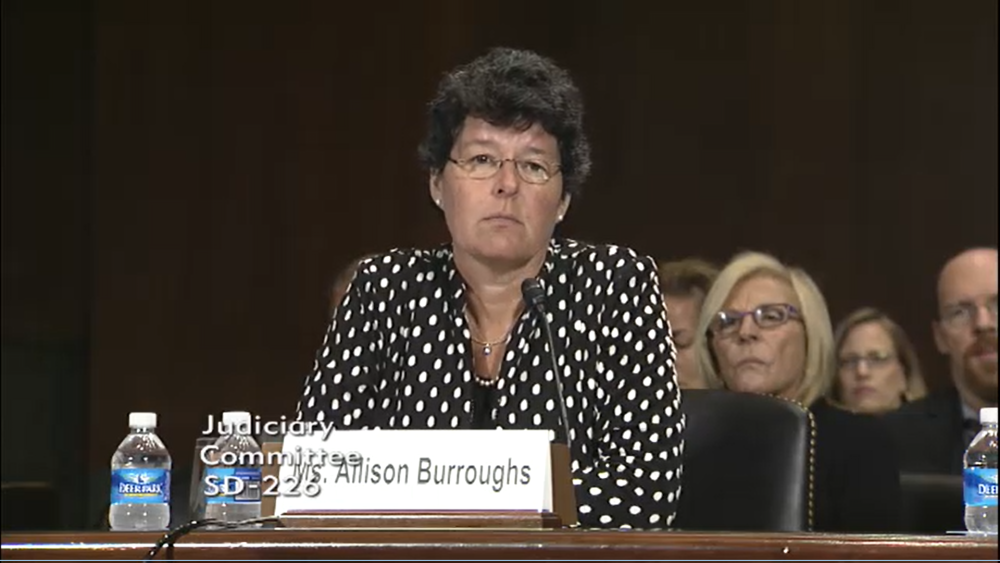The Jewish judge at the center of Trump's Harvard showdown

Federal judge Allison Burroughs appears at her confirmation hearing on September 17, 2014. (video screengrab)
Judge Allison D. Burroughs, during the July 21 hearing in the case between Harvard University and the Trump administration, pressed a Justice Department attorney to explain why the government’s effort to cut off billions of dollars in research funding would meaningfully address antisemitism on campus.
Burroughs, who noted her Jewish faith during the hearing, appeared skeptical of the Trump administration’s argument that the university had failed to protect Jewish students—and that the appropriate remedy was halting federal contracts, including those supporting medical research.
“Let’s assume for the sake of argument that Harvard has not covered itself in glory on the topic of antisemitism,” she said. She questioned how pulling funding for something like cancer research had anything to do with addressing antisemitism.
The moment was striking: A Jewish judge asking whether antisemitism was being used less as a shield for Jewish students and more as a political weapon. But it also carried echoes of Burroughs’s own family history—one shaped by flight from persecution and a commitment to justice forged across generations.
Burroughs is the granddaughter of Harry Burroughs, a Russian-born Jew who escaped pogroms at the turn of the 20th century and became a Boston attorney and social reformer. According to his 1930 memoir, Tale of a Vanished Land: Memories of a Childhood in Old Russia, he stowed away on a ship at age 14, landing in Portland, Maine speaking no English and with no money. He later made his way to Boston, where he sold newspapers.
Eventually, fellow newsboys nominated him for a Suffolk University scholarship. He Americanized his name and became a lawyer. In 1928, Harry founded the Burroughs Newsboys Foundation to support Boston’s underprivileged children and offered annual college scholarships. His book Boys in Men’s Shoes: A World of Working Children, originally published in 1944 and re-released this year with a new introduction, told of the work at the foundation.
The Trump administration says its actions are about protecting Jewish students on campus. But Harvard argues the government is weaponizing antisemitism to punish an elite university, a longtime target of the right, and doing so without due process.
Burroughs seemed to agree, asking pointedly whether the government believed it could terminate contracts “even if the reason you’re giving is a violation of the Constitution.”
This is not her first time challenging executive overreach. In 2017, she temporarily halted President Trump’s executive order banning travelers from seven Muslim-majority countries, turning Boston’s Logan Airport into an early legal battleground over the policy. In 2020, Judge Burroughs presided over a case in which Harvard and MIT challenged the Trump administration’s plan to deport international students taking online classes during the pandemic—a policy ICE withdrew before she issued a ruling.
“I think the issue,” Burroughs said near the end of the hearing, “is whether there’s a legitimate relationship between our distaste for discrimination and the approach the administration is taking.”
Burroughs said she’d rule “as quickly as we can,” with Harvard seeking a decision before September 3, when grant reporting deadlines kick in. —The Forward
This story was originally published in the Forward. Click here to get the Forward's free email newsletters delivered to your inbox.




